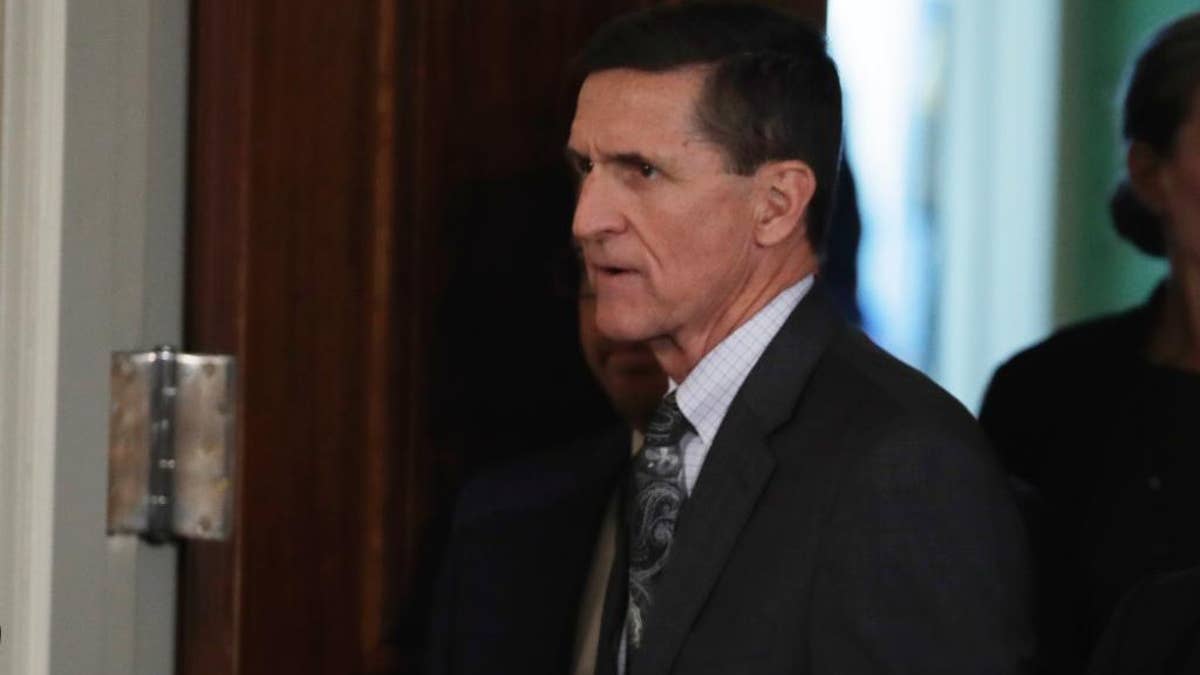
Feb. 13, 2017: National Security Adviser Michael Flynn enters the east Room of the White House in Washington for a joint news conference with President Donald Trump and Canadian Prime Minister Justin Trudeau. (AP Photo/Evan Vucci)
Michael Flynn lasted just over three weeks as President Trump’s national security adviser, but probably hung on too long.
It had been clear for days that his position in the White House had become untenable. But Trump, known for his loyalty to aides in trouble, didn’t push him out, and Flynn declined to step aside until late last night.
Flynn admitted he had provided “incomplete information” about his contacts with the Russian ambassador and said he had apologized to the president and to Vice President Pence, who had defended him on television.
Thus ended a messy period in which the White House sent conflicting signals about Flynn’s status. Just yesterday, Kellyanne Conway said he had the president’s full confidence and Sean Spicer said his situation was under review.
Flynn’s fate was probably sealed when the Washington Post, quoting nine unnamed officials, reported last week that Flynn had discussed U.S. sanctions with the Russian ambassador before Trump was sworn in.
This was a remarkable breach of the one-president-at-a-time protocol that usually defines foreign policy. Still, Flynn probably could have survived that. No one has ever been prosecuted under the obscure Logan Act, which bars private citizens from engaging in international diplomacy.
But it was Flynn’s shifting explanations that did him in.
First he told the Post there were no such discussions. Then, after the story was published, he said the subject might have come up but he didn’t recall.
But his cardinal sin was not being straight with his bosses, putting Pence in the embarrassing position of defending the hard-charging official based on an incomplete account.
By yesterday morning, things did not look good. The New York Times depicted the NSC as being in chaos:
“Three weeks into the Trump administration, council staff members get up in the morning, read President Trump’s Twitter posts and struggle to make policy to fit them. Most are kept in the dark about what Mr. Trump tells foreign leaders in his phone calls. Some staff members have turned to encrypted communications to talk with their colleagues, after hearing that Mr. Trump’s top advisers are considering an ‘insider threat’ program that could result in monitoring cellphones and emails for leaks.” And the paper notes there are questions about “whether he misled Vice President Mike Pence about those conversations. His survival in the job may hang in the balance.”
Obviously, the sources who cooperated with the Post wanted to damage Flynn. But it was his own actions that sealed his fate.
The late-night denouement will totally overshadow Trump’s successful event yesterday with Canadian Prime Minister Justin Trudeau, which included a meeting with female business executives attended by his daughter Ivanka. The same goes for Trump’s weekend diplomacy and golf outing with Japanese Prime Minister Shinzo Abe. cementing the American relationship with a key Pacific ally.
Now Flynn is the big story, and questions about what happened—and who knew about his pre-inaugural diplomacy—will dominate the news for days.





















